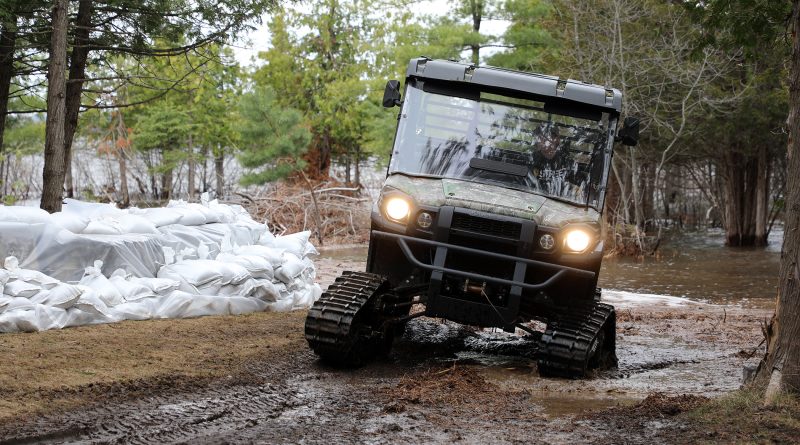Red Cross shares five essential actions for flood preparations
Special to WC Online
OTTAWA – With the freshet upon us and the Mississippi Valley Conservation Authority (MVCA) warning of possible flooding along the low-lying areas along the Ottawa River, the Red Cross has some tips for protecting your property and staying safe in the result of a flood.
“With the recent heavy rainfall and spring ice melt hitting the Ottawa region, flooding has once again become a major concern for residents about rising water levels in the region,” the Canadian Red Cross told West Carleton Online today (March 21). “This isn’t a new issue, as Ottawa was ranked the second most flood-prone city in Ontario in a 2024 survey.”
To help households stay prepared, a Canadian Red Cross spokesperson shared five essential actions to prepare for seasonal flooding.
- Know Your Risk – Flooding can happen anywhere, anytime. Stay informed by monitoring local weather alerts, speaking with your municipality and insurance provider about flood risks, and understanding the difference between a Flood Watch (flooding is possible) and a Flood Warning (flooding is occurring or imminent).
- Make an Emergency Plan – Have a flood plan in place, with your household and neighbours, including evacuation routes and communication strategy. Practice your plan to ensure everyone knows what to do in an emergency.
- Prepare an Emergency Kit – Be ready to be self-sufficient for at least 72 hours. Your kit should include drinking water, non-perishable food, cash, a portable radio, medications, pet supplies, and important documents (copies of birth and marriage certificates, passports, licenses, wills, land deeds and insurance).
- Protect Your Home – Reduce flood risks by keeping storm drains clear, ensuring proper grading around your home, cleaning eavestroughs, extending downspouts, and installing sump pumps and backwater valves to prevent water damage.
- Stay Safe During and After a Flood – If flooding occurs, head for higher ground and stay there, avoid walking or driving through floodwaters and follow instructions from local authorities. Consult the Canadian Red Cross Guide to Flood Recovery for information on what to do when you return home after flooding.
For more information on flood preparation and recovery, visit http://www.redcross.ca/floods.











